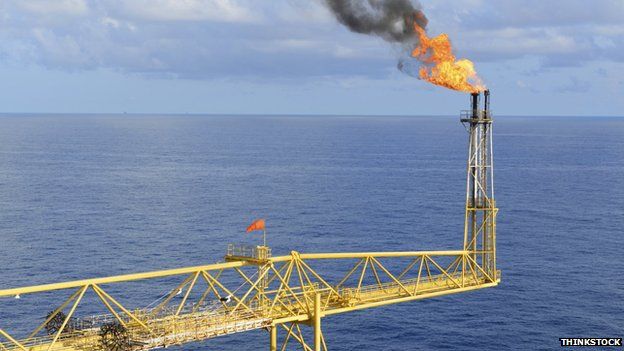Call to Chancellor George Osborne for North Sea tax reform
- Published

Business leaders have renewed calls for a North Sea tax break after a survey suggested confidence in the sector was at its lowest level for six years.
Aberdeen and Grampian Chamber of Commerce (AGCC) found operators were concerned about the effect of low oil prices on exploration and production.
It said reform of the industry's fiscal regime was needed in Chancellor George Osborne's Autumn Statement next week.
The Treasury said the government was committed to maximising resources.
AGCC's latest Oil and Gas Survey showed 62% of oil and gas firms believed tax reforms should be the government's top priority for the sector.
'Major impact'
James Bream, research and policy director at AGCC, said: "In a mature basin like the UKCS (UK Continental Shelf), the industry must cut costs, innovate and increase collaboration, but it cannot work in isolation of government and a consistent, fair and stable tax regime is crucial.
"Companies are not convinced they can get a fair return on their investment and in a global industry, it is very simple for them to move their capital elsewhere.
"The government must be aware that decisions in the next few months will also have a major impact on the £35bn supply chain that exists in the UK."
He added: "We feel that this cut in the tax rate would create a new level of trust and would act as a clear statement of intent from the government that they are committed to maximising economic recovery from the UKCS."
A spokeswoman for the Treasury said: "The fiscal review has been looking at the longer term tax treatment of the oil and gas industry, including how it can continue to encourage investment in the North Sea, whilst ensuring the nation continues to receive a fair share of profits.
"The initial findings of the review will be published alongside the Autumn Statement."
The conservation group WWF Scotland said it would be a mistake to deliver tax breaks for the oil industry.
Director Lang Banks said: "The science is clear. To reduce the risk of dangerous global climate change, the vast majority of known fossil fuel reserves need to be left in the ground and not exploited.
"Therefore the last thing we need to see is even more tax breaks or subsidies for new North Sea oil drilling."
- Published18 November 2014
- Published5 November 2014
- Published3 November 2014
- Published30 October 2014
- Published23 October 2014